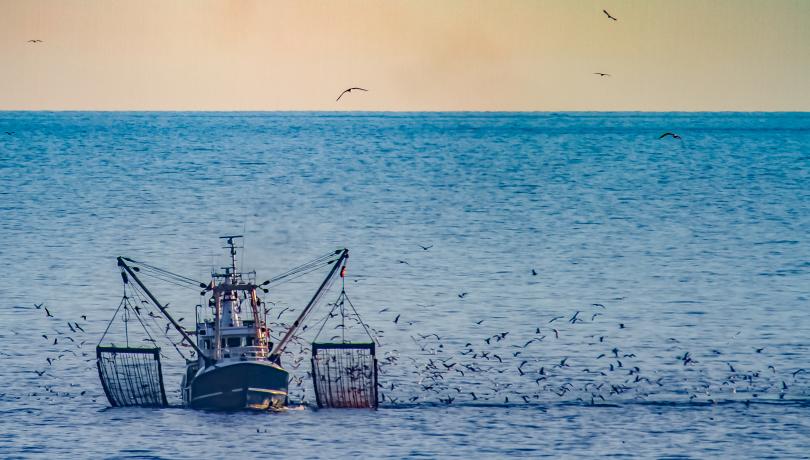The authors of the study, in which the ICM-CSIC has participated, call for immediate global action to ensure food security.

Among the key findings are that global projections indicate a consistent decrease in ocean biomass by the end of the 21st century. This decline poses significant risks to food security, particularly for communities heavily reliant on marine resources, such as regions of the Global South.
The work highlights that strong climate change mitigation efforts that limit global warming to 1.5-2.0 degrees Celsius could reduce losses in exploitable fish biomass by around 15% compared to a high-emissions scenario. This mitigation is crucial for the major fishing nations, with reductions in losses ranging from 10% for Indonesia and Viet Nam to 25% for Peru by 2100.
In terms of fish biomass, the report underlines that approximately 20% of countries face high risks of losing more than 30% of their exploitable fish biomass by 2050 under high-emissions scenarios, and that small island developing states are particularly vulnerable, highlighting the urgent need for both mitigation and adaptation strategies.
In this sense, the FishMIP global projections, global estimates of how seafood biomass is distributed and can change in the ocean, reveal significant uncertainties in some regions, particularly where increases in fish biomass are projected (such as the Polar regions). Given this scenario, the report outlines steps being taken to reduce this uncertainty, including model evaluation and improvement efforts.
The importance of modelling
Global marine ecosystem models are being utilized to support regional climate risk and vulnerability assessments, especially in data-poor regions, aiding in conservation and policy guidance.
FishMIP relies in the use of several global marine ecosystem models, which scientists around the globe develop. One of the global models used in the report, EcoOcean, is developed by the Institute of Marine Science (ICM-CSIC) and Ecopath International Initiative (EII), and allows to unify the consideration of spatial-temporal food-web dynamics ranging from primary producers to top predators with the impacts of environmental change and worldwide fisheries.
“With the development and application of EcoOcean we are contributing to the knowledge needed to evaluate the cumulative impacts in marine ecosystems, which is fundamental for proactive policy making”, states Marta Coll, co-author of the study.
In the last years, FishMIP is also developing a standardized model evaluation framework to improve the reliability of future projections, both at regional and global scales. This includes metrics for testing model performance and efforts to enhance the representation of fishing dynamics.
“These efforts will bring new capabilities to the modelling techniques and provide more robust and informative outcomes to inform the management of the Ocean”, comments Jeroen Steenbeek, co-author of the study and representative of Ecopath International Initiative.
The FAO report also details the development of future fishing scenarios linked to various Shared Socioeconomic Pathways -scenarios used to project future global changes concerning climate change and consider factors such as population growth, economic development and technological progress- assessing potential impacts on ocean biodiversity and ecosystem services. In this regard, future work priorities include resolving ecological and socioeconomic interconnections with other ocean and coastal uses and freshwater and terrestrial resource use to support comprehensive policy directions addressing climate change, biodiversity protection, water and food security, and health.
Recommendations
The report concludes with several recommendations for advancing climate impact ensemble modelling for marine ecosystems and fisheries, emphasizing the need for improved model capabilities and addressing practical challenges. These include the integration of aquaculture in ecosystem models and combined analysis of land-sea modelling outputs for fully integrated assessments.
All in all, the report provides essential knowledge to support FAO’s Climate Change Strategy and advance the organization’s vision of a Blue Transformation towards more efficient, inclusive, resilient, and sustainable blue food systems, which will enhance policies and programs for integrated science-based management of marine resources.